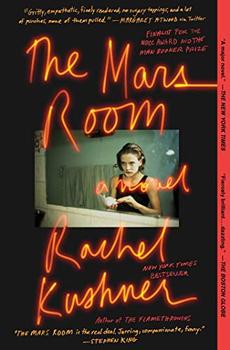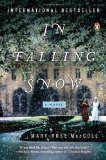Summary | Excerpt | Reviews | Beyond the book | Read-Alikes | Genres & Themes | Author Bio

As a Katherine Mansfield fellow in 1974, the acclaimed New Zealand writer Janet Frame lived and worked in Menton, France. Drawing from these experiences, she wrote In the Memorial Room, a strange and wickedly funny novel that satirizes hero worship of a dead, iconic writer.
Frame would not allow it to be published during her lifetime, perhaps fearing certain people would recognize themselves in her unflattering portrayals. She went on to write several other books and died in 2004 at the age of 79.
Frame left In the Memorial Room to be published posthumously. In the novel, a 33-year-old historical fiction writer named Harry Gill is Janet Frame's equivalent. The exalted dead writer for whom the fellowship is awarded is an internationally known poet, the fictional Margaret Rose Hurndell. And the award itself is called the "Watercress-Armstrong Fellowship," named for its two principal donors, Connie Watercress and Grace Armstrong.
When the novel opens in 1973, Harry learns he will be living half of the following year in Menton, where Hurndell wrote her last three books before dying at age 30 of a brain hemorrhage.
Early in the story, Harry reveals he is gradually losing his sight. His looming blindness preoccupies—and often terrifies—him throughout the book. He's also plagued by self-doubt as a human being and writer. "My confidence so easily flounders," he laments.
In journal style, Harry relays his "tenure of the Watercress-Armstrong Fellowship," which gets off to a rocky start when he sees the room set aside as a memorial for Hurndell: a small, desolate space where he is expected to write but Hurndell, oddly enough, never inhabited while she lived and worked in Menton. The neglected room has no access to running water or a toilet yet is eerily decorated with water-spotted plaques inscribed with facts about Hurndell's career. "It would have been more fitting," Harry thinks, "had Rose Hurndell been buried here and not in London. Here, in this room, they had another grave for her, to keep alive her death rather than her work. A unique memorial, to pay a writer to work within a tomb!"
Harry describes himself as the kind of person "who is inclined to miss the best trains, to find the worst rooms in hotels, the surliest waiters in restaurants." For her part, Connie Watercress, a New Zealander and co-sponsor of the fellowship, brims with literary pretentiousness, often to hilarious effect. The mother of a 33-year-old son—an aspiring author she refers to as "the young Hemingway" even though he hasn't written a book yet—Connie previously wrote newspaper articles and books, but nothing of lasting significance. By idolizing Hurndell and ensuring her legacy, Connie (like many other expatriates Harry encounters in Menton) basks in the deceased poet's glory.
Frame's searing wit burns brilliantly in many sections, but the novel is serious, as well, particularly when Harry's observations veer into contemplations about aging, retirement, regret, enmity, and the brutality of time: wrestling with one's promise, failings, and insignificance. Or, as Harry puts it, one's "nothingness."
Admittedly, I was barely familiar with Frame's work before starting this book. More than a decade ago I saw, and recently watched again, "An Angel at My Table," the film based on Frame's three-volume autobiography. Frame spent much of an eight-year period incarcerated in mental hospitals and was misdiagnosed with schizophrenia. Spared a lobotomy when a collection of her short stories won a prestigious literary prize, she produced a prodigious amount of work including novels, short story collections, poetry, and a children's book.
Maybe it's because I'm older now, focused more on writing, but the themes and literary characters in this recently published book were, for me, especially resonant, and I'm currently indulging in more of Frame's work. (Towards Another Summer, another posthumously published novel, is breathtakingly sad and luminous.) For readers who crave unconventional stories, piercing prose, and peculiar, sharply drawn characters, In the Memorial Room should garner its inimitable author new admirers while further establishing her reputation with already devoted fans.
![]() This review was originally published in The BookBrowse Review in February 2014, and has been updated for the
January 2015 edition.
Click here to go to this issue.
This review was originally published in The BookBrowse Review in February 2014, and has been updated for the
January 2015 edition.
Click here to go to this issue.

If you liked In the Memorial Room, try these:

by Rachel Kushner
Published 2019
From twice National Book Award–nominated Rachel Kushner comes a spectacularly compelling, heart-stopping novel about a life gone off the rails in contemporary America.

by Mary-Rose MacColl
Published 2013
A bestselling Australian writer's American debut and a heart-wrenching novel of World War I, painting a portrait of the changing role of women in medicine and the powerful legacy of love.
Your guide toexceptional books
BookBrowse seeks out and recommends the best in contemporary fiction and nonfiction—books that not only engage and entertain but also deepen our understanding of ourselves and the world around us.